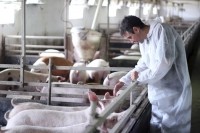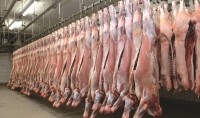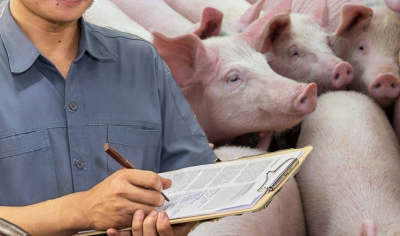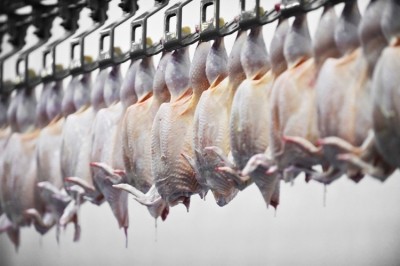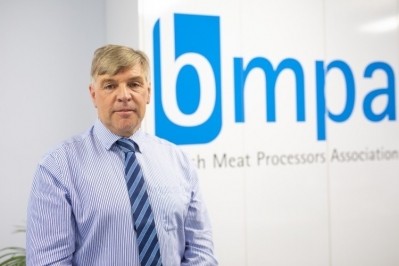Digital feature: long read
Meat & poultry: Official Vets and the wider staff crisis
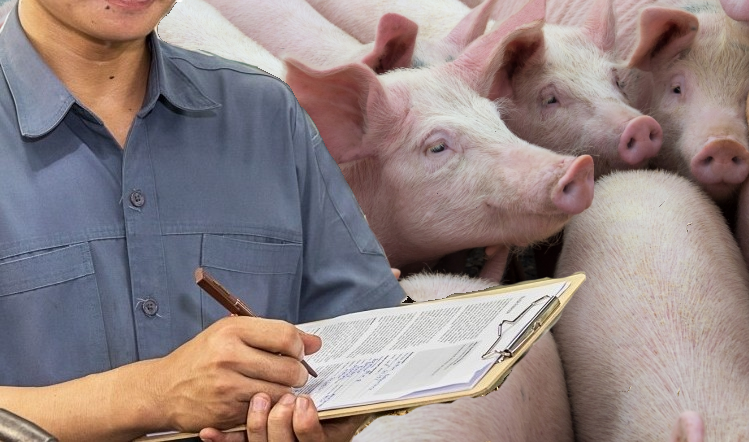
As the labour crisis continues to plague the UK’s meat industry, one area that has come into sharper focus has been the shortage in OVs across meat processing sites. It's a major focus for Food Standards Agency (FSA) chief operating officer Colin Sullivan.
While his main concern was for the present – and alleviating people’s fears of food shortages over the Christmas period – Sullivan pointed out that shortages of OVs still weighed heavily on the meat industry.
“We will obviously want to recruit more [vets], because of the possibility of attrition and because of the possibility of retention issues and maybe they’re met with other opportunities," he told Food Manufacture. "We don’t know how the Northern Ireland protocol will land longer-term – and we don’t know whether or not there will be more opportunities for export health certification."
“Some of the delays that have occurred in terms of rolling out the post transition period – for example some of the checks that would happen at ports in the UK – have been delayed, so when all of that moves into place then you will have pressure on vets.”
Sullivan did confirm that more OVs were coming to help meet demand. But he warned temporary registration arrangements – allowing approved and accredited vets to apply to the Temporary Register to carry out meat Official Controls – overseen by the Royal College of Veterinary Surgeons – would need to be extended to help fill the gaps.
“They are actually running a cross-profession/system workshop to look at that at the end of November and the FSA will be contributing to that,” Sullivan added. “We are in dialogue with them, but we obviously want longer-term solutions that are more sustainable. But we do know from out service delivery partner that the numbers of vets coming through are increasing.”
Issues surrounding the supply of vets have primarily stemmed from Brexit, with the UK forced to continue to follow EU legislation to promote consistency. However, now that it has left the EU, the UK can begin to set its own rules for OVs.
A new set of standards
In order to maintain standards set by the EU, OVs and health inspectors are both required at abattoirs – a set up that is currently under review by the FSA.
“We are looking at how we might change this going forward over the medium to longer term as part of our operational transformation programme, which will look at ‘should we change the legislation? Should we change the level of presence that we have in certain plants?’, said Sullivan.
“At the moment the model is one size fits all in which you have to have a vet in the majority of plants while production is ongoing. But that could be changed.
“We could segment the cohort of different food businesses into those that are highly compliant and lower risk, and those that are less compliant and higher risk. We might find that we have a lower level of presence in those that are highly compliant and that would require legislative change, but it’s part of the operational transformation programme.”
The shortage of OVs in the UK circles back to the larger labour crisis being felt across the whole of the UK food and drink industry, not least the meat sector.
Pilgrim’s UK insight director Kelly Eastwood acknowledged the impact of the labour shortage had been further compounded by the lingering impact of CO2 shortages, big increases in raw material costs and lower trade volumes with the EU and other overseas markets.
“Combined, these factors pose a significant challenge for the UK pig sector and risk UK consumers being forced to accept imported, lower quality products made with lower animal welfare standards,” she added.
A spokesman for the British Meat Processors Association (BMPA) told Food Manufacture a recent Environment, Food and Rural Affairs (EFRA) Committee meeting made it clear the Government did not understand the current make-up of the UK labour market, which had undergone a huge structural change since Brexit and COVID-19 began taking effect.
“The Government needs to face reality and allow more workers in to the country to take up these jobs immediately,” said the spokesman. “The kind of experienced workers we need simply don’t exist in the UK right now and it will take the next two years to recruit and train British people.
“Government needs to review the level of English required of migrant workers. Currently, it’s around A-Level standard which is an unnecessary barrier for those seeking a job that requires more manual skill. This would be true of British workers as well. There’s also no mention of food processing in the new T Courses announced recently, and food barely appears in the National Curriculum.
‘Not a quick fix before Christmas’
“This is a two year re-balancing exercise, not a quick fix before Christmas and, come New Year’s Day, this labour crisis will still be strangling the British food industry.”
Rebecca Ironmonger, dispute resolution sector at Roythornes Solicitors, added the lack of workforce to meet demand is not limited to butchers – skilled slaughtermen are leaving the profession because of closing abattoirs, attractions of higher paid jobs elsewhere and as a result of Brexit.
“It is against this backdrop that we are seeing unsubstantiated, unreasonable and overzealous enforcement action by the Food Standards Agency in our abattoirs, which results in skilled slaughtermen losing their Certificates of Competence entirely unnecessarily,” she explained. “When fewer slaughtermen have increased workloads, mistakes are inevitable. For our small abattoirs, with only a handful of slaughtermen, the loss of just one can be disastrous.
“It is vital to challenge any enforcement action by the regulators, and in a climate where the sector is already reaching breaking point, every suspension and revocation of a Certificate of Competence should be vigorously challenged. For a small abattoir with only one or two qualified slaughtermen, the loss of one could mean that the abattoir must close. Furthermore, it means that a prosecution for alleged animal welfare breaches many months down the line is a near certainty.”
Ironmonger highlighted the potential impact a lack of abattoir staff would have on the quality and standards of products. “Not only does this have an impact on animal welfare of both the pigs coming through and the pigs that have to be slaughtered on farm, the financial impact will be felt at every stage of the food chain, as will the environmental impact.
“For farmers who have produced the pigs just to see them culled, this is devastating and may, in many cases, take a toll on their mental health and possibly even see them leave the industry.”
Environmental challenges
Outside of the challenges presented by the lack of labour, high on the list of priorities for many meat processors is the journey toward net zero carbon emissions and a more sustainable supply chain, goals that were pulled into focus during last month’s United Nations Climate Change Conference (COP26).
One business working to become to reduce emissions was Cranswick – 14 of the manufacturer’s UK sites were certified carbon neutral by Verra and Gold Standard. The meat processor reduced relative scope 1 and 2 carbon emissions by 18% in the last financial year.
To achieve this, Cranswick has invested in a raft of measures across its sites to rapidly reduce emissions, including efficiency projects, clean energy investments and waste reduction initiatives across its entire network.
Jim Brisby, chief commercial officer at Cranswick, said: “Our ambition is to become the world’s most sustainable meat business, but this goal is about action, not just words. It is crucial that all food manufacturers work together to recognise their role in tackling the climate crisis. We have led the way by signing up to Science Based Targets, committing to halving our emissions by 2030 and reaching Net Zero by 2040, but we can’t make a difference on our own.
“Tackling climate change isn’t easy – we have made significant changes to the way we operate our business, from how we source our feed, power our sites and reduce our waste.”
Cranswick weren’t the only meat business that had dedicated resources to cutting their emissions and boosting sustainability.
The BMPA drew attention to the efforts of ABP to develop a range of methods to reduce the carbon footprint of beef cattle on their Shropshire farm – from selective breeding through to innovations in methane-reducing feed, manure management and even a wearable methane-neutralising mask.
A spokesman added: “As consumers get more discerning about the food they eat and demand more accurate and nuanced information on which to base their decisions, we would always advocate that the environmental impact of cultivated meat and processed plant-based products versus meat from traditionally reared animals should be scrutinised using a suitable metric, like GWP* [Global Warming Potential Star] to accurately determine their relative environmental footprints.”
While the FSA's Sullivan was confident the sector would survive the near future and attempted to dispel fears of turkey shortages over Christmas, many questions still remain surrounding the future of meat production in the UK.
What we can be certain of, however, is that the industry will be facing many more challenges from now and into the future.
Summing up the situation, Rollits corporate finance director Julian Wild said: “There is no doubt that, for environmental and ethical reasons, meat production will remain under some pressure in the years ahead. Manufacturers will need to show that they are leading the way in terms of animal welfare, sustainability and CO2 emissions.
“But the same issues remain for the whole food industry - labour shortages, rising wages, commodity costs, long lead times, removing plastic, driver recruitment etc. Only the fittest will survive. “
